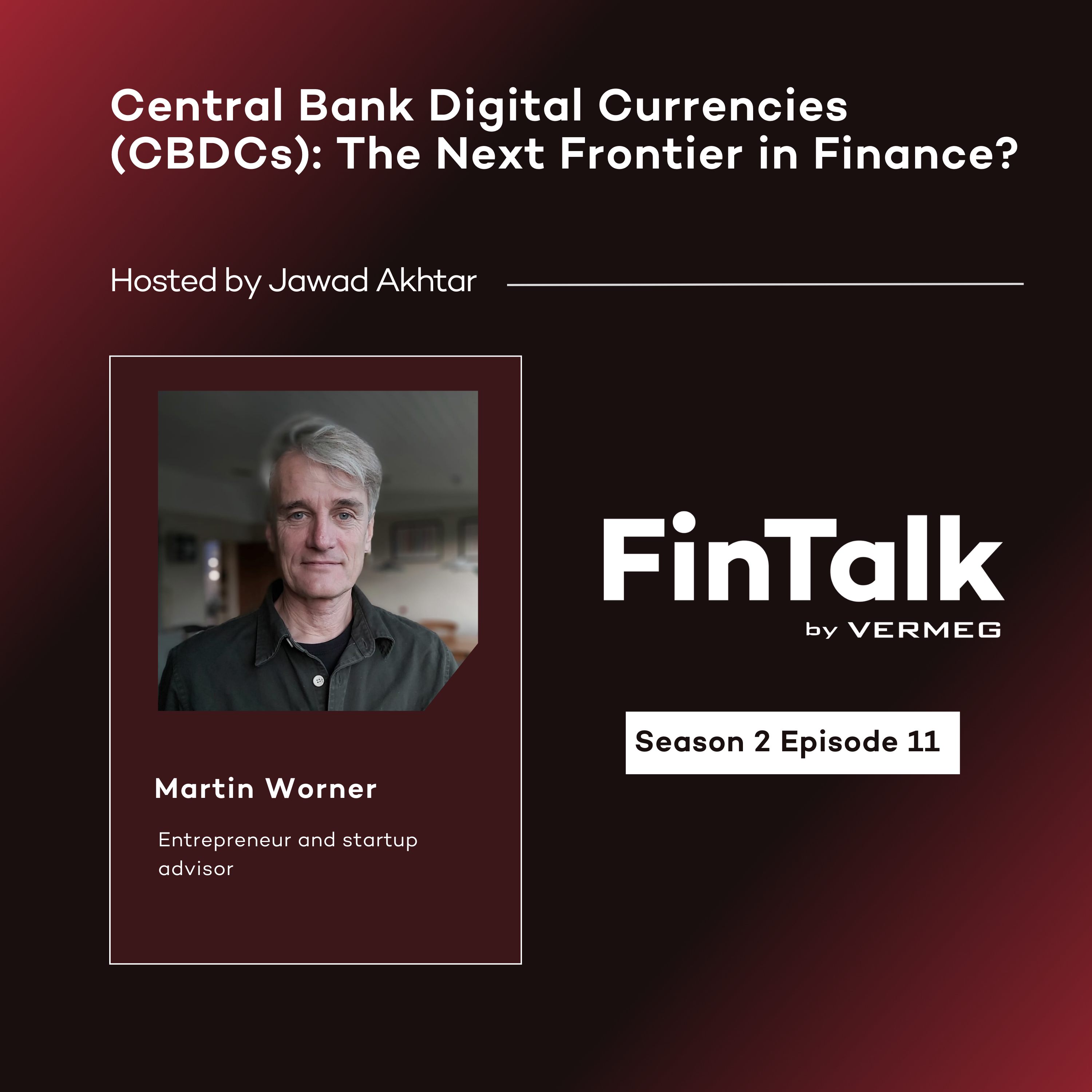
Listen on other Podcast Platforms
Hosted By Jawad Akhtar
Welcome to FinTalk by Vermeg, the leading podcast in Regulatory Reporting and RegTech that addresses the most pressing topics in the financial services industry.
In this episode, our host Jawad Akhtar is joined by renowned industry expert Martin Worner, Chair of Stelerator. Together, they delve into an insightful discussion about the current state of blockchain and cryptocurrencies, the importance of legislation, and the potential of Central Bank Digital Currencies (CBDCs).
This episode of FinTalk by VERMEG covers:
VERMEG:
https://www.linkedin.com/company/vermeg/
Jawad Akhtar:
https://www.linkedin.com/in/jawad-akhtar-fintalk/
Martin Worner:
https://www.linkedin.com/in/martinworner/
Stay tuned for more insightful conversations on the FinTalk podcast.
“I think the danger we always have with this is obviously the regulators would quite happily push everything into securities laws. And the securities laws are set up, have evolved over time from paper systems into electronic, to order books and so on. There’s a whole mechanism, and the checks and balances are built in when bad events happen. So when the liquidity crunch happened, we saw CCPs come in, CSDs and so on, to be able to handle all that correctly. But I think applying the same rules to crypto may not be the most effective way of doing this, because if all you’re doing is moving it to a new technology, you’re just introducing cost to the whole industry for no benefit. So if you think about just pure settlement clearing, we have, say, central ledger that everyone can share. So there’s no passing around inventory from one house to another.”
– Martin Worner (4:30)
“There definitely seems to be a land grab in this space with… It almost feels like there’s a race to be the first one to do one, and to have the best one, and it’s really quite broad in the different approach they’re taking. So you have China’s rushed off with their one, they’ve launched theirs, and it’s widely used internally. And I guess I can see the motivation for central banks doing this because here we have a parallel currency that they’ve got no control on, particularly, and that’s starting to be used in the economy, and that’s not connected to the national currency that they’re charged to look after. So you can see the temptation and saying, well, we can’t ignore this, so let’s do our own one and let’s start putting it out there.
But the problem you have is if you start issuing CBDCs, and your own digital pound or digital euro or digital dollar, then who’s actually going to be distributing this? Because the relationship between the central banks and the wholesale banks is one thing, but in wholesale banks, the customer’s another, so it’s a bit messy. So maybe the best way to look at it would be CBDC that connects the wholesale banks together for the central bank. They have that control, they know how much is issued, they can take care of that. They manage liquidity, they link it to treasury, whatever it is. And then the wholesale banks have a mechanism where they can instantly settle and it replaces any convoluted ways of transferring money between each other.”
– Martin Worner (2:54)
Listen to the full episode now on your favorite podcast platform and stay informed about the latest trends and regulations affecting your business.